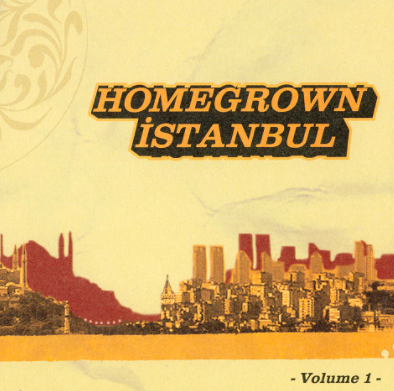
“Sinema” (2006) – Cahit Berkay * Written and produced by Cahit Berkay * CD: Homegrown Istanbul Vol. 1 * Label: Kolaj Müzik
The line between Turkish folk, pop and rock is blurry enough that the effort to make strict distinctions can feel academic. This speaks highly of the distinctiveness of Turkish musical traditions and the persistence of practitioners like Cahit Berkay, one of the 1967 founders of the influential group Moğollar. The sounds of the saz, darbuka, kanun, kemence and kaval all travel freely across Turkey’s musical highways as vehicles for creative expression thanks to those of Berkay’s mindset. His own efforts possibly stand out among legends such as fellow band member Cem Karaca, Erkin Koray and others because of his long career as a film composer, with over 200 projects under his belt. There’s an element of “stepping away” in a busy film composer’s career, though, that encourages, perhaps, a reliance on diluted texture over substance. Music first created for its own merits is inevitably of a higher potency than a commissioned soundtrack, which is more a commentary on differences in media than it is a criticism of Berkay.
“Sinema” appears on a compilation called Homegrown Istanbul that favors roots-oriented musicianship over popular vocals. It showcases Berkay’s track in fuller form than previously found as the soundtrack lead theme for a 2005 Turkish version of Cinema Paradiso called Sinema Bir Mucizedir (cinema is magic). Yes, it’s magic, but music is more so.



